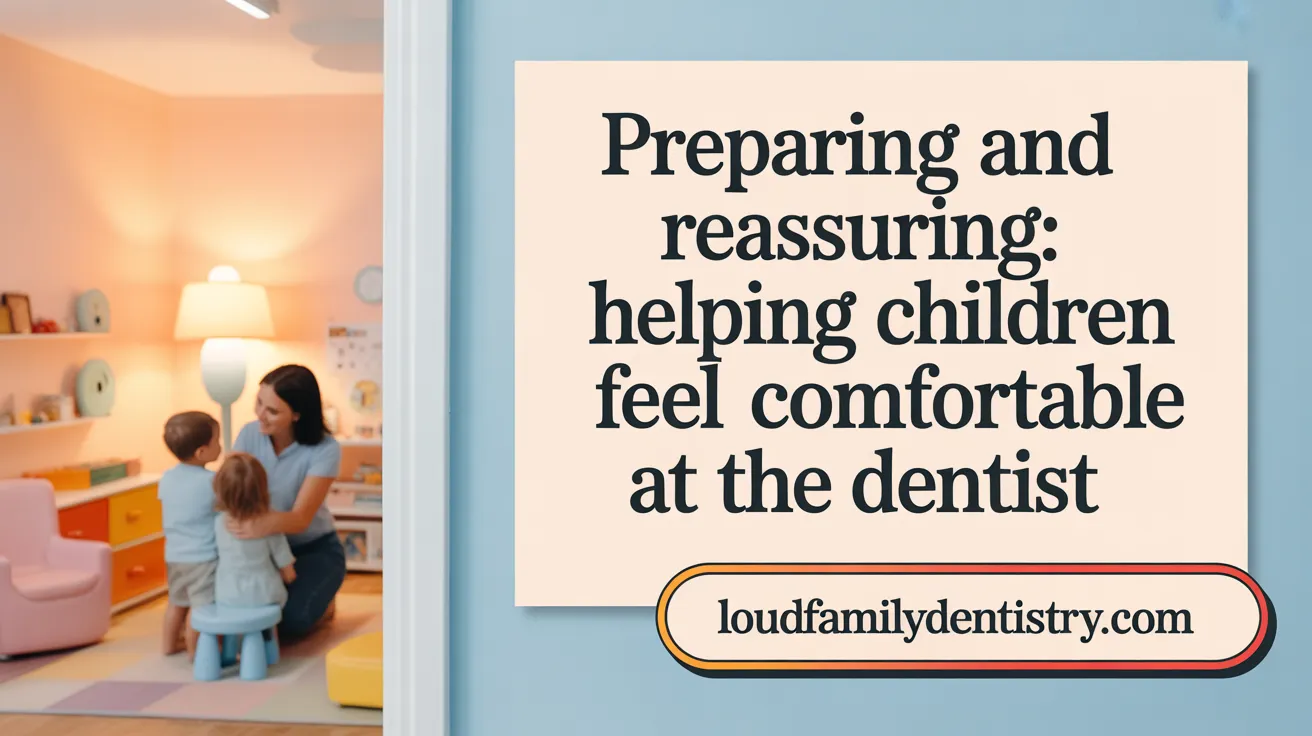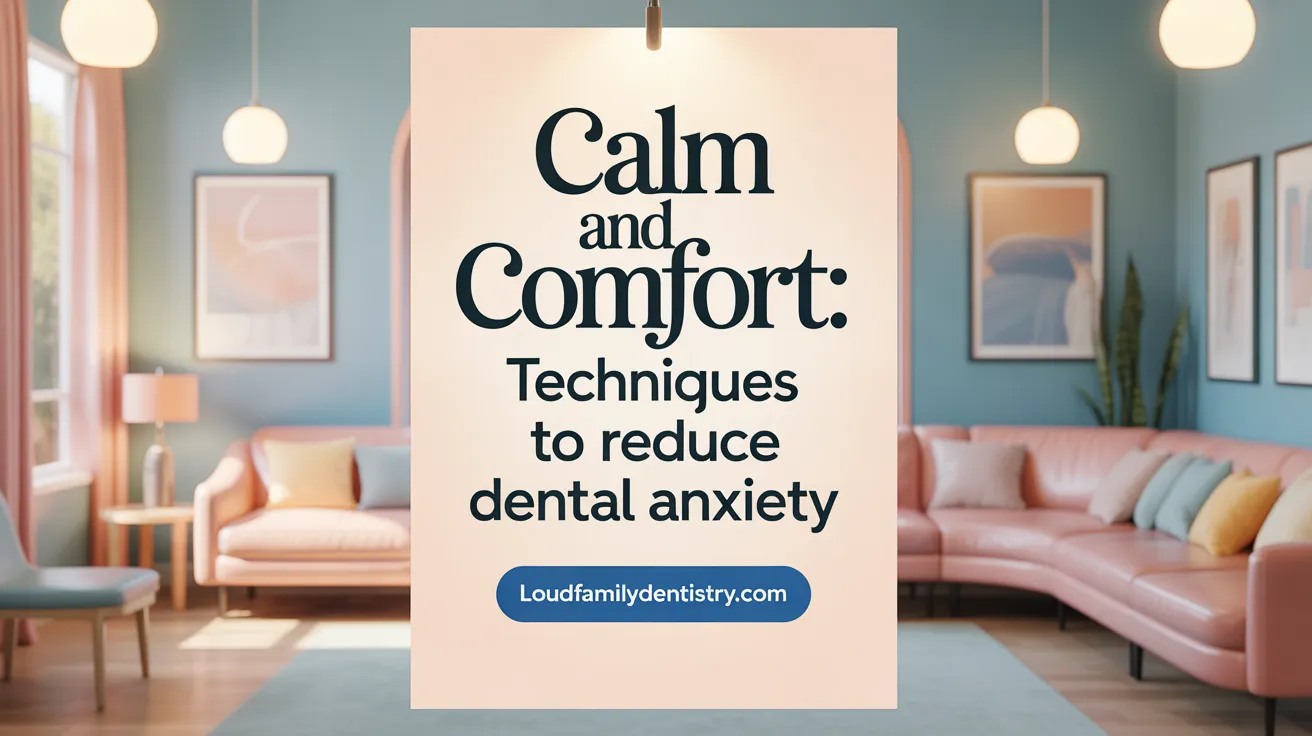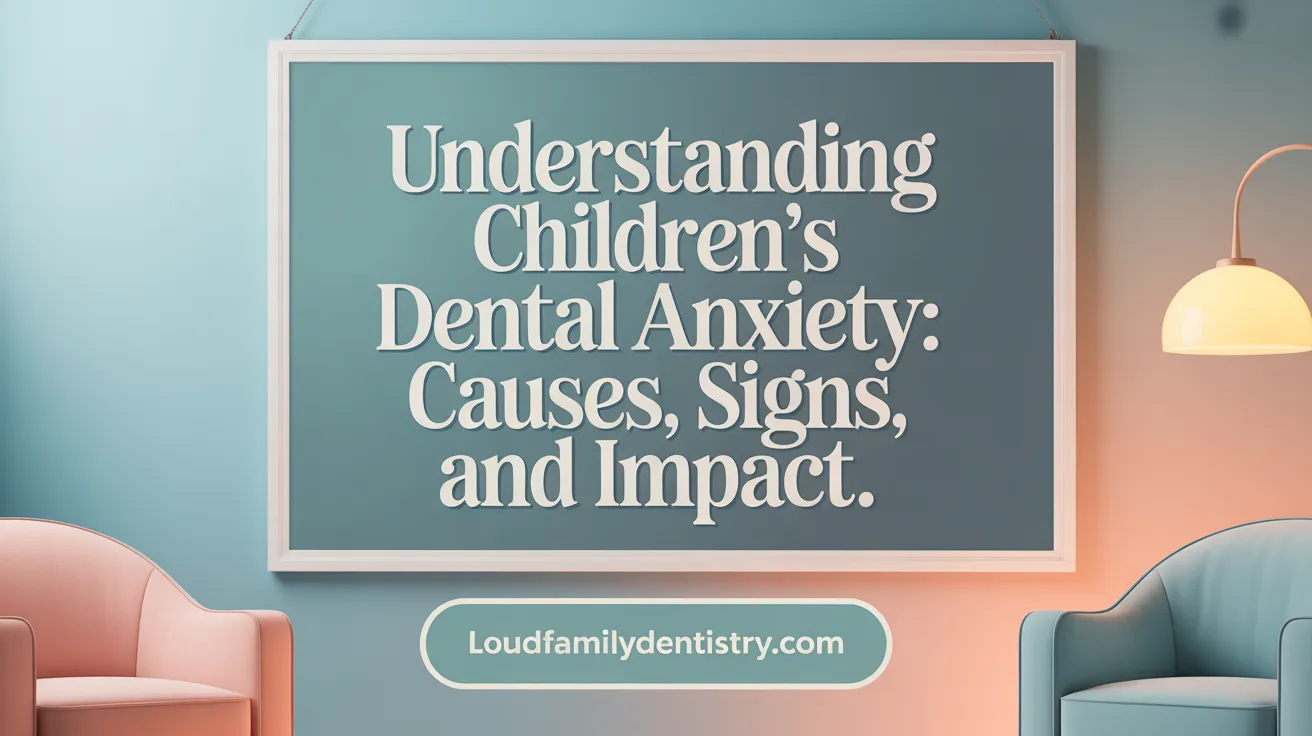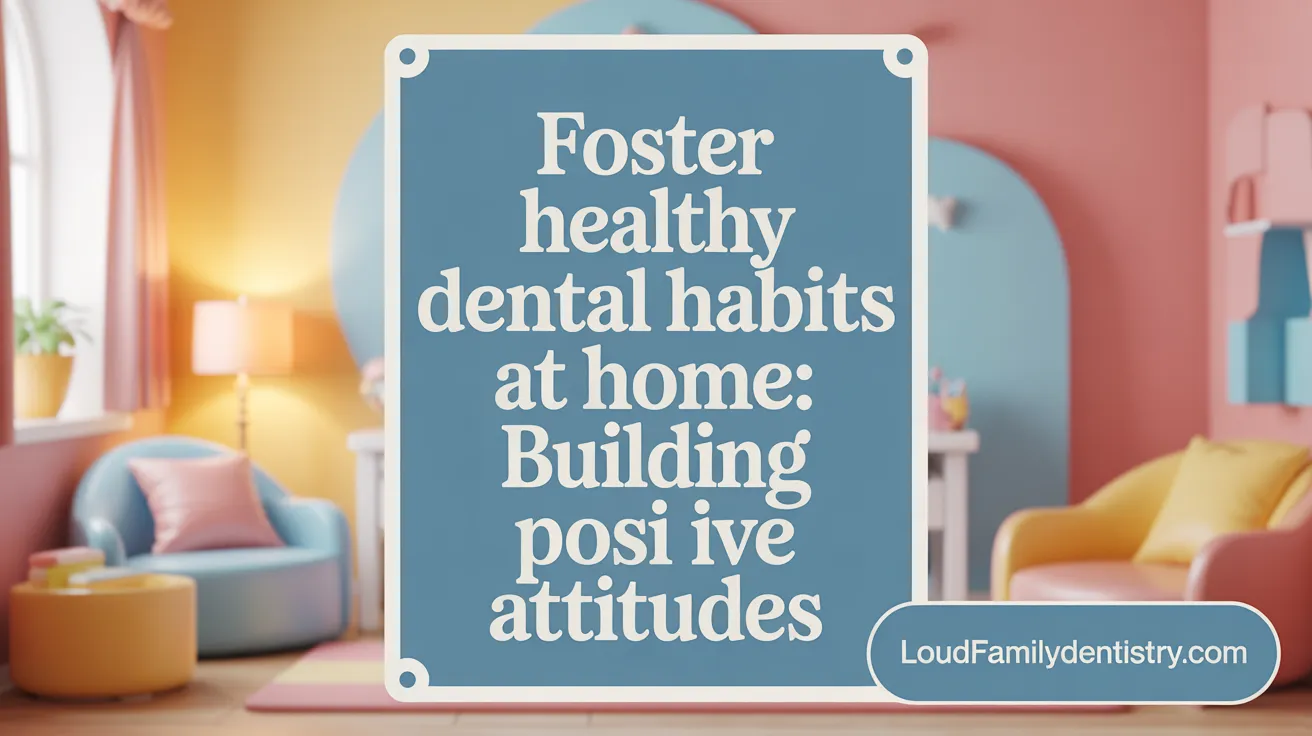Understanding and Addressing Dental Anxiety in Kids
Dental anxiety is common among children and can negatively impact their overall oral health by leading to skipped dental visits and increased fear. Understanding the causes of this anxiety and learning practical strategies to ease it is essential for parents and caregivers. This article explores effective approaches to reduce dental anxiety in children, helping families foster positive dental experiences and lifelong healthy habits.
Early Dental Visits: The Foundation of Fear-Free Care

Why is it important to start dental visits early?
Starting dental visits early, preferably by a child's first birthday or shortly after their first teeth emerge, helps familiarize them with the dental environment. This early exposure normalizes the experience and reduces the likelihood of developing fear or anxiety later in childhood.
Pediatric dental offices are designed to be inviting, with colorful decor and child-friendly equipment, creating a welcoming environment. Parents are encouraged to use positive language and explain procedures in simple terms to set a positive tone.
What are the benefits of regular check-ups?
Consistency in dental visits every 6 or 12 months plays a significant role in lowering dental anxiety among children. Regular appointments not only improve oral health but also help children become accustomed to the routine, reducing fears associated with unfamiliar procedures.
Building familiarity through ongoing visits fosters comfort and trust. During appointments, distraction techniques like music, toys, or books, coupled with praise and rewards, make experiences more pleasant.
How do early visits help reduce children’s dental anxiety?
Early initiation of dental care helps children develop positive associations with dental procedures from a young age. When children repeatedly have neutral or positive experiences, their fear diminishes over time, acting almost like a 'vaccine' against future anxieties.
Incorporating tools such as storybooks, videos, and role-playing at home prepares children and demystifies what to expect. Additionally, teaching breathing or relaxation exercises can facilitate calmness during treatments.
What does the research say about age of first visit and dental fear?
Studies indicate that the age of the first dental visit and how often children are brought to the dentist predict approximately 44.4% of the variation in dental fear levels. This highlights the importance of early and regular care.
Furthermore, starting visits early helps normalize dental care, making future visits easier. Early visits and positive experiences provide a foundation for lifelong positive attitudes toward oral health.
What role do pediatric dentists play in early oral health?
Specially trained pediatric dentists understand how to manage children’s fears and needs. They create a supportive atmosphere using gentle behavior guidance, age-appropriate explanations, and a kid-friendly environment.
Choosing such a specialist can significantly reduce a child's anxiety. The environment often includes toys, colorful decor, and equipment scaled for children, making the dental office less intimidating.
| Aspect | Description | Additional Detail |
|---|---|---|
| Timing | Start by age 1 or shortly after first tooth | Early visits build familiarity and trust |
| Environment | Kid-friendly decor and tools | Eases fears through visual comfort |
| Techniques | Positive reinforcement, distraction, familiarity | Reinforces positive experiences |
| Parental Role | Stay calm, talk positively, reinforce at home | Parental behavior influences child's comfort |
Creating Comfort: Preparing Children for the Dental Experience

How can parents help their children feel more comfortable during dental visits?
Parents play a crucial role in making dental visits a positive experience. Starting dental care early, ideally by the child's first birthday, helps normalize the environment and prevent fear from developing. Using language appropriate for the child's age and talking about dental visits in a positive and reassuring way can ease anxiety.
Bringing along comfort items such as stuffed animals or blankets provides reassurance. Engaging children in role-playing or pretend dentist games helps familiarize them with dental procedures, reducing the fear of the unknown. Additionally, distraction techniques like toys, music, or videos during the appointment can make the visit smoother and more manageable.
Creating a calm and supportive atmosphere by maintaining a positive attitude as a parent also influences the child's emotional response. Communication that emphasizes the fun aspects of dental care and the importance of good oral health encourages a more relaxed attitude.
What practical advice can parents follow to create positive dental experiences for their children?
To foster positive feelings toward dental visits, parents should introduce their children to dental care early, ideally around their first birthday. Choosing a family-friendly or pediatric dental office that features colorful decor and a welcoming staff can reduce fears associated with unfamiliar environments.
Using positive language when discussing dental visits, avoiding words that might evoke fear like 'hurt' or 'pain,' and instead describing procedures as 'teeth counting' or 'cleaning' can help children have a favorable perception.
Role-playing at home with toothbrushes, mirrors, and flashlights helps children understand what to expect and feel more in control. Reading children's books or watching videos that showcase positive dental experiences adds a fun, educational element to preparation.
Offering praise, small rewards, or stickers after visits reinforces positive associations and motivates children to cooperate during future appointments. Overall, early exposure, friendly environments, positive communication, and engaging activities contribute significantly to creating a comfortable dental experience for children.
Managing Anxiety During the Visit: Techniques and Environment

What are some effective strategies for reducing dental anxiety in children?
Reducing dental anxiety in children involves multiple supportive strategies. Distraction techniques, such as playing music, showing videos, or providing toys and books, help divert their attention from dental procedures. Relaxation methods like teaching deep breathing exercises or visualization can give children a sense of control and calmness.
Establishing a child-friendly dental office environment is also crucial. Colorful decor, engaging activities, and approachable staff create a welcoming atmosphere that eases tension.
Positive reinforcement is highly effective. Praising children and offering small rewards after visits encourages bravery and helps build positive associations with dental care.
What are some effective methods to manage and lessen children’s dental fears?
Managing and reducing fears involves using techniques like distraction and relaxation during treatment, which can significantly lower stress. Creating an environment designed for children with toys and kid-focused decor helps normalize dental visits.
Parental presence during appointments offers emotional reassurance. Parents staying calm and supportive influences children’s emotional responses positively.
Additionally, working with pediatric dentists trained in behavior management ensures children receive gentle guidance tailored to their needs. These professionals use effective communication, distraction, and reassurance to make dental visits less intimidating.
Below is a summary table of these strategies:
| Strategy | Description | Benefits |
|---|---|---|
| Distraction techniques | Toys, videos, music during procedures | Keeps children engaged and reduces focus on discomfort |
| Relaxation exercises | Deep breathing, visualization | Promotes calmness and a sense of control |
| Child-friendly environment | Colorful decor, toys, friendly staff | Eases anxiety by creating a welcoming setting |
| Parental involvement | Supporting, calming presence, gentle reassurance | Provides emotional security for children |
| Positive reinforcement | Praising and rewarding bravery | Reinforces positive experiences and reduces future fears |
Implementing these methods ensures children develop comfort with dental visits, setting the stage for healthier oral habits and less anxiety over time.
Recognizing and Understanding Dental Anxiety in Children

Causes of dental anxiety in children
Children may develop fear of the dentist due to various reasons. Negative past experiences, such as painful procedures or uncomfortable sensations, can create lasting fears. Hearing stories from peers or family members about painful dental visits can also influence anxiety levels. Additionally, the fear of unfamiliar equipment or the environment, especially if not introduced gently, can contribute to apprehension.
Poor dental hygiene leading to cavities or dental discomfort might make visits more distressing, reinforcing fears. Sometimes, underlying mental health issues like anxiety disorders can heighten a child's sensitivity to dental procedures. Recognizing these causes allows parents and caregivers to approach dental visits with increased sensitivity.
Signs and emotional responses to anxiety
Children experiencing dental anxiety often exhibit specific behaviors and physical symptoms. They may become visibly nervous, crying or throwing tantrums before and during the appointment. Restlessness, fidgeting, or clinging to a parent are common emotional responses. Physical signs include sweating, trembling, or quickened breathing.
Some children might withdraw emotionally, becoming silent or unresponsive. Recognizing these signs early enables dental professionals and parents to adopt calming strategies, such as distraction or gentle reassurance, thus preventing the fear from escalating.
Impact of previous negative experiences
A negative prior dental visit can act as a 'vaccine,' creating long-term fear that influences future dental care. These experiences may involve pain, discomfort, or feelings of helplessness, leading children to associate dental visits with distress. Such fear often results in evasion of routine check-ups, which can compromise oral health.
Creating positive experiences afterward, through praise and gentle treatment, is crucial for rebuilding trust. Regular early visits, starting around a child's first birthday, can help familiarize children with dental procedures in a non-threatening way.
Dynamic development of dental fear
Dental fear in children isn’t static; it develops and can fluctuate over time. Young children might initially be curious, but as they encounter unfamiliar sights or sounds, their anxiety can increase. Traumatic experiences or hearing about painful procedures from others can intensify fear.
Conversely, early positive encounters, familiarization, and proper communication can reduce the development of dental anxiety. Techniques like storytelling, role-playing at home, and using child-friendly media can make dental visits less intimidating.
When to seek professional mental health support
In severe cases where fear profoundly impacts a child's life or prevents necessary dental care, consulting a mental health professional skilled in childhood anxiety is advisable. These professionals can employ therapies such as cognitive-behavioral therapy or relaxation techniques to help children cope.
If standard calming strategies and environment adjustments prove ineffective, and the child's fear persists despite efforts, seeking specialized support ensures comprehensive care. Early intervention can prevent the development of longer-term phobias and support healthier dental habits.
Building Lasting Positivity: Encouraging Healthy Dental Attitudes at Home

How can parents help their children feel more comfortable during dental visits?
Preparing children at home through role-playing is a highly effective method. Using a toothbrush, mirror, and flashlight, parents can simulate a dental exam, allowing children to become familiar with what to expect. This practice helps children gain a sense of control and reduces fear of the unknown.
In addition to role-play, storytelling plays a vital role in easing anxiety. Reading children’s books or watching videos that depict positive dental experiences can help demystify the process. Engaging narratives and colorful characters make dental visits seem less intimidating and more approachable.
Creating a supportive and calm environment at home, using positive language to discuss dental care, and praising children for their brave behavior also significantly contribute to their comfort during dental appointments.
What practical advice can parents follow to create positive dental experiences for their children?
Parents should involve children in their daily oral care routines to build confidence. Making brushing and flossing a fun activity, perhaps by turning it into a game, helps foster positive feelings about dental hygiene.
Planning pleasant activities after dental visits, like visiting a favorite park or getting a small reward, reinforces the idea that dental appointments are manageable and even enjoyable.
Employing storytelling techniques and using praise and rewards for cooperation help instill trust. These strategies, combined with early visits and positive reinforcement, help children develop a healthy attitude toward dental health that lasts a lifetime.
Strategies to foster positive attitudes
| Strategy | Description | Benefit |
|---|---|---|
| Role-playing at home | Pretending to visit the dentist with toy tools and costumes | Familiarizes children with dental routines, reduces fear |
| Using positive language | Describing visits as 'teeth counting' or 'teeth cleaning' | Creates a positive perception and reduces apprehension |
| Celebrating successes | Offering praise and small rewards after visits | Builds confidence and encourages cooperation |
| Gradual desensitization | Short, non-invasive visits initially to build trust | Eases anxiety over time, especially for very young or fearful children |
| Engaging stories and media | Watching videos with friendly characters undergoing dental visits | Normalizes the process and lowers anxiety |
Implementing these simple practices at home can significantly influence a child’s attitude towards oral health and dental visits, establishing a foundation for lifelong good habits.
Fostering Confidence and Comfort for a Lifetime of Healthy Smiles
Reducing dental anxiety in children is achievable through a combination of early, regular visits, clear communication, and supportive strategies both at home and at the dental office. By preparing children with positive language, familiarization, and empowering techniques like distraction and relaxation, parents can nurture confidence and ease fears. Choosing child-friendly dental professionals and environments further enhances comfort. Ultimately, fostering a positive dental experience from the beginning not only reduces anxiety but also encourages healthy habits that last a lifetime.
References
- How Can We Reduce Dental Fear in Children? The ...
- Managing Dental Anxiety in Children: A Guide for Parents
- How to Handle Dental Anxiety in Children | Richmond, VA
- Kids' dental phobia: 6 ways to support a child scared of the ...
- How Can I Help My Child Overcome Dental Anxiety?
- Tips For Easing Dental Anxiety In Kids
- Tips from a Pediatric Dentist in Hutto to Ease Your Child's ...
